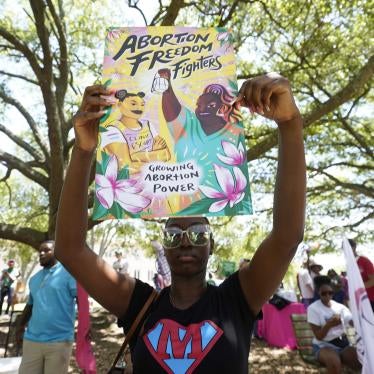A letter signed by 28 organizations this week is asking the United States Environmental Protection Agency to establish a reproductive justice expert position within its environmental justice division. The science is piling up on how environmental crises negatively affect reproductive health. The US government needs to include reproductive justice in its response to marginalized communities hit hardest by the climate crisis, air pollution, and other hazards.
A recent paper by the US National Institute of Health lays out evidence that toxicants undermine fetal health and are linked to pregnancy-related deaths and serious illness. The paper underscores how toxicants are a reproductive rights and justice problem, with disproportionate impacts on marginalized individuals, including communities of color. People in marginalized communities are often exposed to higher levels of toxicants and are more vulnerable to harmful consequences because of many other stressors on their health.
Air pollution, for example, is worse for communities of color in the US, and is associated with higher rates of pre-eclampsia and gestational diabetes, both serious pregnancy diseases with lifelong health consequences. It’s also associated with lower fertility, polycystic ovarian syndrome, and fibroids.
As with extreme heat, wildfires, and other disasters worsened by the climate crisis in the US, exposure to air pollution is also linked to higher rates of low birth weight and preterm birth, increasing the baby’s risk of dying before reaching their first birthday. Studies show racial disparities in these outcomes. In the case of extreme heat, Black and Asian pregnant people in California were at higher risk of preterm birth due to heat exposure.
The US, already failing to address shocking racial disparities in maternal and newborn health, cannot afford even more pressure on maternal and newborn health. Recent data includes rising rates of preterm birth (and a worsening ratio between Black and white women), maternal deaths, and serious pregnancy health conditions.
US President Biden’s administration says it has prioritized environmental justice, and the passage of the Inflation Reduction Act promises needed resources. But impacts on reproductive health have been afforded far less attention. Putting resources at the intersection of environmental and reproductive justice in the US and creating a new reproductive justice expert position are the important next steps.









